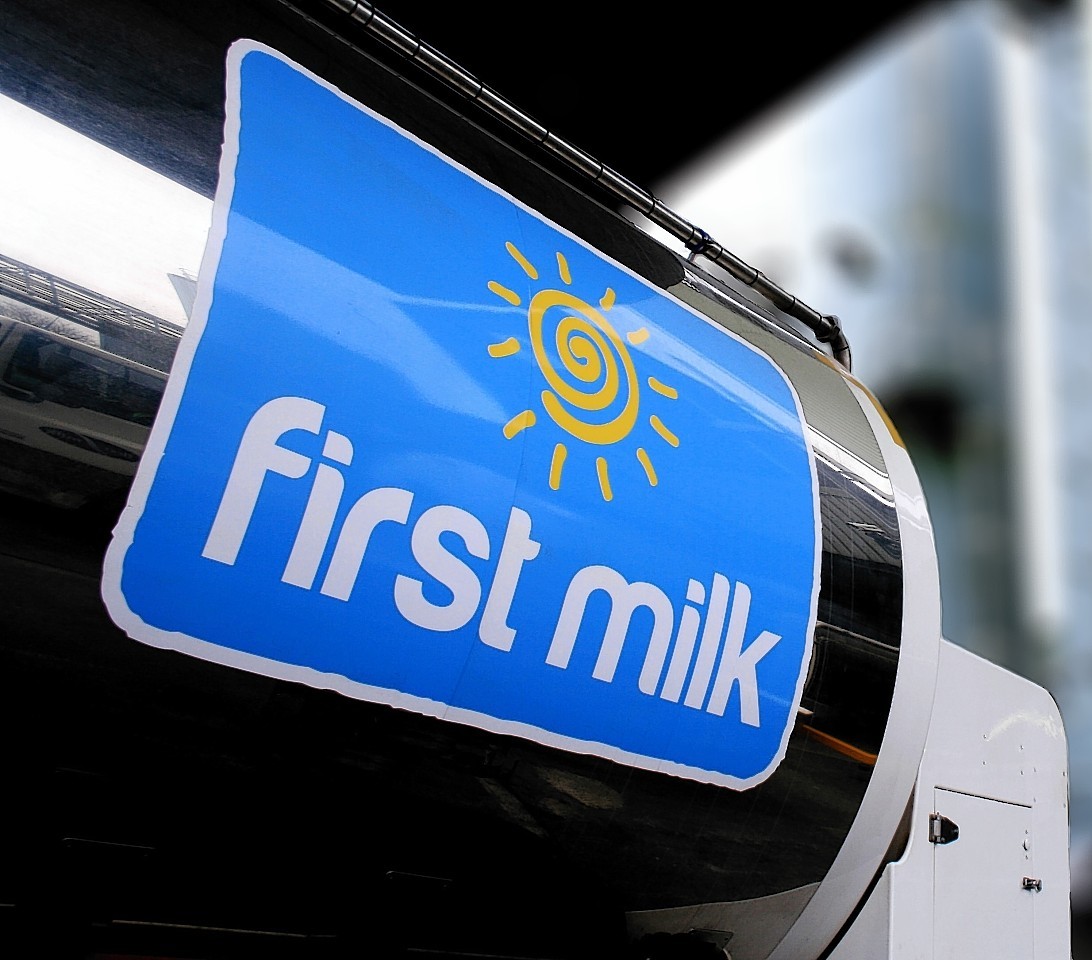Troubled milk processor First Milk has announced plans to introduce a new AB formula contract for all producers from April 1.
The Glasgow-headquartered farmers’ co-operative has been at the centre of the current dairy crisis, which resulted in the Press and Journal launching a campaign to help dairy farmers.
Last month it was forced to delay payments to farmers after revealing it was suffering from cash-flow problems.
It also asked members to increase their capital payments into the co-operative to keep it afloat.
Following in the footsteps of Graham’s The Family Dairy, which introduced a similar contract at the start of this month, First Milk will now pay farmers two different prices for their milk.
An AB contract aims to encourage farmers to only produce what is needed for the market, by paying less, for example, on the B price when farmers are producing milk that is not needed.
First Milk has also pledged to closer link butterfat, protein and hygiene payments to farmers according to the end use of their milk.
The co-op’s chairman Sir Jim Paice, who previously served as Defra farm minister at the peak of the last milk price crash in 2012, said the new pricing would benefit farmer members by delivering a milk price that quickly and clearly reflected market returns.
In a statement, First Milk said: “This [new pricing mechanism] will enable members to make more informed production decisions, to take advantage of market upturns, or mitigate their exposure to market falls.
“These changes also give members the opportunity to achieve a higher milk price by tailoring their production to the specific market requirements for their milk.”
Commenting on the announcement, NFU Scotland’s milk committee chairman Graeme Kilpatrick said: “We welcome this move by First Milk to introduce A and B pricing for its members because this will be more transparent, however, we do have reservations.
“We need to know if this pricing mechanism takes in all First Milk producers including those on specialist contracts, and if there is seasonality on top of this.”
Milk production was now running below last year’s levels, and in the past four weeks the Global Dairy Trade auction prices have risen by around 19%, he added.
“This is positive for the industry and we hope this trend continues.”
